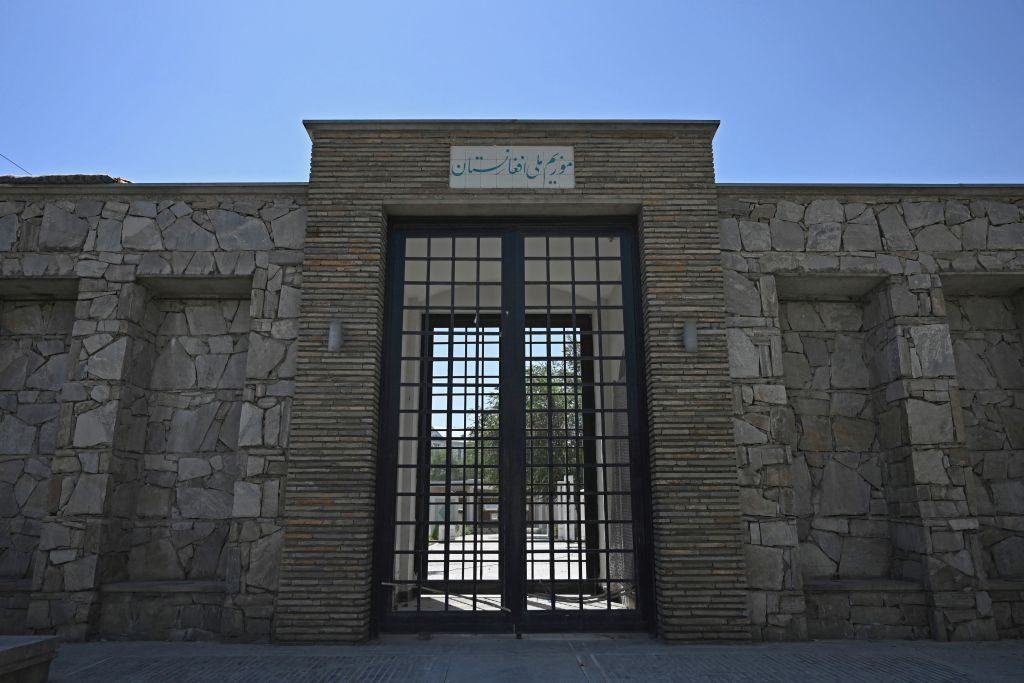Art World
A Group of 12 Art Trade Associations Has Vowed to Prevent Cultural Heritage Trafficking From Taliban-Ruled Afghanistan
The organizations have warned their members to be on the alert for looted artifacts circulating on the market.

The organizations have warned their members to be on the alert for looted artifacts circulating on the market.

Vivienne Chow

Twelve art trade associations have joined hands in a concerted effort to prevent Afghanistan’s cultural heritage from being trafficked in the Western market following the Taliban’s takeover of the country.
The organizations from the United States and across Europe have pledged to be extra vigilant to avoid unwittingly facilitating illicit archeological activity and looting, and repeating the cultural devastation of the last time the group took control of the country 20 years ago.
“The art trade must be prepared to do what it can to ensure that any illicit cultural property coming out of Afghanistan does not make its way onto the market,” said a statement co-signed by the 12 industry organizations. “To that end, as trade associations we will continue to alert our members and others to the heightened risks involved.”
The effort has been co-ordinated by Erika Bochereau, the secretary general of the Confédération Internationale des Négociants en Œuvres d’Art (CINOA), and has been backed by associations including Art and Antique Dealers League of America, the International Association of Dealers in Ancient Art, as well as major industry associations from the United Kingdom, France, Italy, Czech Republic, Spain and Germany. “We will continue to support law enforcement in publicizing news of stolen and trafficked items to prevent them from entering the market,” the letter continued.
Bochereau told Artnet News that, so far, none of their members has been contacted by anyone offering to sell Afghan cultural artifacts. “We will continue to monitor the situation,” she said, adding that the organizations that have co-signed the letter will warn their members, and encourage them to report to the police should they be approached to sell these artifacts.
While the Taliban has pledged to protect Afghanistan’s cultural heritage sites and and to prevent looting, many fear a déjà vu of the horror that shocked the world last time the group took control of the country. There have already been reports of looting of the Afghan National Archives, and the Taliban blew up a statue of an ethnic minority leader in August.
It was estimated that Afghanistan lost about half of its cultural heritage two decades ago under the Taliban regime. Among the most jarring attacks was the deliberate destruction of two sixth century historic Buddhas of Bamiyan, a UNESCO World Heritage site, in 2001. UNESCO said the Taliban committed a “crime against culture” at the time. In August, the organization’s director general, Audrey Azoulay, called for the protection of cultural heritage from damage and looting in the country.
The joint statement signed by the 12 trade associations also warned against the risk illicit digging for artifacts poses to important archeological sites. “Allowing such artifacts to enter the market compromises the legitimate art and antiquities market and goes against our trade associations’ professional and ethical standards, which are reflected in our written codes,” it said.
The art trade associations also urged governments to be careful about returning artifacts to Afghanistan now that it has fallen to Taliban control. “The current acting Minister of the Interior is Sirajuddin Haqqani, a terrorist wanted by the FBI and with a bounty of up to $10 million on his head,” the letter said.
It is notable that the joint effort does not include any dealers from Asia, which has a vast market for fine art and antiquities. Bochereau said that while CINOA has members in Europe, the U.S., South Africa and Australia, it does not have close any close contacts with the Asia market or major Asian art dealers associations that it could have contacted to sign the letter. But she added that the organization is “open to collaboration.”